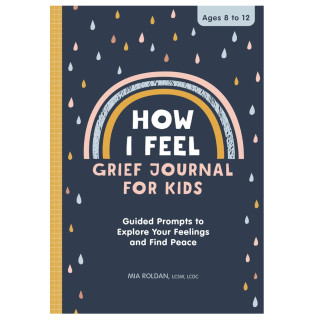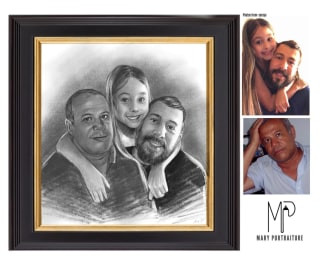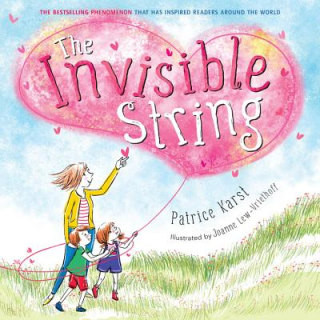Navigating the loss of a loved one is incredibly challenging, and expressing condolences can be difficult. Finding an appropriate sympathy gift shows your support during this tough time, and lawyergift.com offers a curated selection of thoughtful items suitable for any individual. We can help you choose memorial keepsakes that offer comfort and express your sincere empathy.
1. Understanding the Importance of Sympathy Gifts
What makes a sympathy gift appropriate, and why is it important to offer one?
An appropriate sympathy gift is one that offers comfort, acknowledges the loss, and shows support to the grieving individual or family. It’s important because it:
- Provides Comfort: Offers a tangible source of solace during a difficult time.
- Expresses Support: Shows you are thinking of them and care about their well-being.
- Acknowledges the Loss: Validates their grief and acknowledges the significance of their loss.
- Offers Practical Help: Can provide practical assistance during a period of disruption and emotional distress.
- Acts as a Lasting Reminder: Serves as a lasting reminder of your support and care.
According to the American Psychological Association (APA), offering support through tangible means, such as sympathy gifts, can significantly aid the grieving process by providing a sense of connection and reassurance.
2. Types of Sympathy Gifts
What kinds of gifts are generally considered appropriate?
Appropriate sympathy gifts come in many forms, catering to different needs and preferences. Here’s a look at some of the most common and thoughtful options:
-
Flowers: A classic choice, offering beauty and a sense of peace. Opt for calming colors like white, soft pink, or lavender.
- Example: A bouquet of white lilies or a peace lily plant symbolizes hope and renewal.
-
Plants: A longer-lasting alternative to flowers, symbolizing growth and remembrance.
- Example: A small succulent or a peace lily can be easy to care for and provide lasting comfort.
-
Sympathy Gift Baskets: Filled with comforting items such as gourmet food, snacks, tea, or self-care products.
- Example: A basket with herbal teas, honey, crackers, and soothing lotions can provide relaxation and nourishment.
-
Personalized Memorial Gifts: Items customized with the deceased’s name, photo, or a special message.
- Example: A framed photo, an engraved piece of jewelry, or a memorial wind chime with a personalized inscription.
-
Books on Grief and Healing: Offering guidance and support through the grieving process.
- Example: “The Year of Magical Thinking” by Joan Didion or “Notes on Grief” by Chimamanda Ngozi Adichie.
-
Comforting Blankets or Throws: Providing warmth and a sense of security.
- Example: A soft, plush blanket or a knitted throw can be a comforting and practical gift.
-
Candles: Symbolizing light, hope, and remembrance.
- Example: A scented candle with calming fragrances like lavender or chamomile.
-
Donations to Charity: Making a donation in the deceased’s name to a cause they supported.
-
Food and Meals: Providing practical help by offering to cook meals or send ready-made food.
- Example: A homemade casserole, a gift certificate to a local restaurant, or a meal delivery service subscription.
-
Journals: Offering a space for reflection and expression of feelings.
- Example: A beautiful journal with prompts or blank pages for writing down thoughts and memories.
 Customized Leather Journal
Customized Leather Journal
3. Gifts to Avoid
What types of gifts are generally considered inappropriate or insensitive?
Choosing the right sympathy gift means also knowing what to avoid. Some gifts can be unintentionally insensitive or inappropriate, depending on the circumstances and the recipient’s personal preferences. Here’s a guide to gifts you should generally avoid:
- Religious Items (Unless Specifically Requested):
- Why: Religious beliefs vary widely. Unless you know the recipient is deeply religious and would appreciate a religious item, it’s best to avoid them.
- Example: Rosaries, religious statues, or scriptures might not be suitable for everyone.
- Self-Help Books Unrelated to Grief:
- Why: While self-help can be beneficial, giving books on unrelated topics (like weight loss or career advice) can seem insensitive.
- Gifts That Focus on “Moving On” Too Quickly:
- Why: Grief is a process, and suggesting someone should “move on” can be hurtful.
- Example: A dating service subscription or a book about finding a new spouse shortly after a loss.
- Exercise Equipment or Gym Memberships:
- Why: Suggesting someone needs to focus on physical fitness during a time of grief can seem insensitive.
- Excessively Expensive Gifts:
- Why: An overly lavish gift can make the recipient feel uncomfortable or obligated.
- Personal Care Items (Unless You Know Their Preferences):
- Why: Items like strongly scented lotions or perfumes can be overwhelming or cause allergic reactions.
- Items That Require a Lot of Effort from the Recipient:
- Why: Grieving individuals may lack the energy or motivation for complex tasks.
- Example: A complicated DIY kit or a plant that requires extensive care.
- Gifts That Remind Them of Their Loss in a Painful Way:
- Why: Avoid items that might trigger intense sadness or remind them of the deceased’s suffering.
- Novelty or Gag Gifts:
- Why: These can be seen as disrespectful and insensitive during a time of mourning.
- Alcohol:
- Why: Offering alcohol can be inappropriate, especially if the deceased struggled with addiction or the recipient is not a drinker.
4. Factors to Consider When Choosing a Sympathy Gift
What are some of the key factors to keep in mind to ensure the gift is appropriate and well-received?
Choosing an appropriate sympathy gift involves thoughtfulness and consideration. Here are key factors to keep in mind to ensure your gift is well-received and provides comfort:
-
Relationship to the Deceased and the Bereaved:
- Close Family Member: For immediate family, consider more personal and meaningful gifts, such as personalized memorial items, custom photo albums, or contributions to a memorial fund.
- Friend or Colleague: For friends or colleagues, simpler gestures like flowers, sympathy baskets, or a thoughtful card can be appropriate.
-
Personal Preferences and Tastes:
- Hobbies and Interests: If the bereaved has specific hobbies or interests, tailor the gift to reflect these. For example, if they enjoy gardening, a plant or gardening set could be suitable.
- Dietary Restrictions and Allergies: Be mindful of any dietary restrictions or allergies when selecting food items for a sympathy basket.
-
Religious and Cultural Beliefs:
- Respectful Choices: Be aware of the bereaved’s religious and cultural beliefs, as these can influence the appropriateness of certain gifts. Some cultures may have specific customs regarding sympathy gifts.
-
Timing of the Gift:
- Immediate Support: Sending a gift immediately after the loss provides immediate comfort and support.
- Later Support: Sending a gift several weeks or months later shows ongoing support, as the grieving process continues.
-
Practical Needs:
- Helpful Items: Consider gifts that address practical needs during this difficult time, such as pre-made meals, house cleaning services, or childcare assistance.
-
Personalization:
- Meaningful Touch: Adding a personal touch, such as a handwritten note or customized item, can make the gift more meaningful and heartfelt.
-
Simplicity and Understatement:
- Avoid Overly Extravagant Gifts: Opt for simple and understated gifts to avoid making the bereaved feel uncomfortable or obligated.
-
Gifts for Children:
- Age-Appropriate: If there are children in the family, consider age-appropriate gifts such as books about grief, comforting stuffed animals, or journals for expressing their feelings.
 Grief Journal for Kids
Grief Journal for Kids -
Long-Lasting Impact:
- Memorial Items: Choose gifts that offer a lasting reminder of the deceased, such as a memorial tree, a piece of art, or a memory box.
-
Consider the Message:
- Expressing Condolences: Ensure that the gift is accompanied by a heartfelt message expressing your condolences and offering support.
According to a study by the University of Michigan, personalized and thoughtful sympathy gifts can significantly enhance the recipient’s sense of support and connection during bereavement.
5. The Importance of a Handwritten Note
Why is a handwritten note so important when giving a sympathy gift?
A handwritten note is an essential component of a sympathy gift because it adds a personal and heartfelt touch that conveys your sincere condolences and support. Here’s why it’s so important:
- Personal Connection: A handwritten note creates a personal connection that store-bought cards or typed messages can’t replicate.
- Sincerity: It shows you’ve taken the time and effort to express your feelings, conveying genuine sympathy.
- Comfort and Support: Your words can provide comfort and reassurance to the grieving individual, letting them know they are not alone.
- Acknowledgment of Loss: Acknowledging the loss directly validates their grief and shows you understand the significance of their pain.
- Sharing Memories: Sharing a fond memory of the deceased can bring comfort and help celebrate their life.
- Customization: A handwritten note allows you to tailor your message to the specific situation and your relationship with the bereaved.
- Practical Assistance: Offering practical help, such as running errands or providing meals, shows you are willing to support them beyond just words.
- Lasting Impact: A heartfelt note can be cherished and reread during difficult moments, providing ongoing comfort.
- Respect: It demonstrates respect for the bereaved and the deceased, honoring their relationship and the depth of their loss.
- Emotional Expression: Writing allows you to express emotions that might be difficult to say in person, providing a channel for your empathy and support.
What to Include in a Sympathy Note
What are some key elements to include in a thoughtful and supportive sympathy note?
A thoughtful and supportive sympathy note should include several key elements to convey your sincere condolences and offer comfort. Here’s a guide to what you should include:
- Acknowledge the Loss:
- Example: “I was so sorry to hear about the passing of [Deceased’s Name].”
- Express Condolences:
- Example: “My heart goes out to you and your family during this difficult time.”
- Share a Positive Memory (Optional):
- Example: “I will always remember [Deceased’s Name] for their [positive quality, e.g., kindness, humor, generosity].”
- Offer Support:
- Example: “Please know that I am here for you if you need anything at all.”
- Offer Practical Help:
- Example: “I would be happy to help with meals, errands, or anything else you need.”
- Use Empathetic Language:
- Example: “I can only imagine how difficult this must be for you.”
- Keep It Concise:
- Guideline: A few heartfelt sentences are often more impactful than a long, rambling letter.
- Avoid Clichés:
- Instead: Use your own words to express your sympathy.
- Be Genuine:
- Guideline: Write from the heart and let your true feelings show.
- Close with a Warm Sentiment:
- Example: “Sending you all my love and support,” or “Thinking of you and wishing you peace.”
6. Sympathy Gifts for Different Relationships
How do you choose a sympathy gift based on your relationship with the bereaved?
The appropriateness of a sympathy gift often depends on your relationship with the bereaved. Here are some guidelines to help you choose:
Close Family Members
-
Appropriate Gifts:
-
Personalized Memorial Items: Engraved jewelry, custom photo albums, or a memorial portrait.
 Hand Drawn Charcoal Portrait for Loved Ones
Hand Drawn Charcoal Portrait for Loved Ones -
Acts of Service: Offering to help with funeral arrangements, childcare, or household tasks.
-
Meaningful Experiences: A weekend getaway, a spa day, or a donation to a cause the deceased supported.
-
-
Why: These gifts provide lasting comfort and show deep empathy and support.
Friends
-
Appropriate Gifts:
-
Flowers or Plants: A classic and comforting gesture.
-
Sympathy Baskets: Filled with comforting items like tea, snacks, or self-care products.
 cookie box
cookie box -
Books on Grief: Offering guidance and support through the grieving process.
-
-
Why: These gifts are thoughtful and provide comfort without being overly personal.
Colleagues
- Appropriate Gifts:
- Group Gift: Pooling resources to send a larger gift, such as a sympathy basket or a plant.
- Gift Card: To a local restaurant or meal delivery service.
- Office Collection: A card signed by all colleagues expressing condolences.
- Why: These gestures are professional and respectful, showing support without overstepping boundaries.
Acquaintances
- Appropriate Gifts:
- Sympathy Card: A heartfelt card expressing condolences is often sufficient.
- Small Gesture: A small bouquet of flowers or a thoughtful note.
- Why: A simple and sincere gesture is appropriate for those with whom you have a less personal relationship.
7. Practical Sympathy Gifts
What are some practical gifts that can help the bereaved with daily tasks and responsibilities?
Practical sympathy gifts can be incredibly helpful, providing tangible support during a time when the bereaved may be overwhelmed with daily tasks and responsibilities. Here are some practical gift ideas:
- Meal Delivery Service Subscription:
- Benefit: Provides ready-made meals, reducing the burden of cooking.
- Example: Services like HelloFresh, Blue Apron, or local restaurant delivery.
- Gift Certificates to Local Restaurants:
- Benefit: Allows the bereaved to enjoy a meal without having to cook or clean.
- House Cleaning Services:
- Benefit: Offers relief from household chores, providing a clean and comfortable environment.
- Lawn Care Services:
- Benefit: Helps maintain the yard, especially if the bereaved is physically unable to do so.
- Errand Services:
- Benefit: Assists with tasks like grocery shopping, picking up prescriptions, or running other errands.
- Childcare Assistance:
- Benefit: Provides support for families with young children, allowing the bereaved to focus on grieving.
- Pet Care Services:
- Benefit: Helps care for pets, including feeding, walking, and grooming.
- Pre-made Meals:
- Benefit: Offers convenient and nutritious meals that require minimal preparation.
- Grocery Delivery:
- Benefit: Delivers groceries directly to their door, saving time and effort.
- Professional Organizing Services:
- Benefit: Helps declutter and organize the home, providing a sense of order and control.
- Transportation Services:
- Benefit: Provides rides to appointments, funeral arrangements, or other necessary trips.
- Care Packages:
- Benefit: Includes essential items like toiletries, snacks, and comforting items.
- Financial Assistance:
- Benefit: Helps cover funeral expenses or other financial burdens.
- Home Repair Services:
- Benefit: Assists with minor home repairs and maintenance tasks.
8. Memorial Gifts
What are some memorial gifts that can serve as a lasting tribute to the deceased?
Memorial gifts provide a lasting tribute to the deceased, helping to keep their memory alive. Here are some thoughtful memorial gift ideas:
-
Personalized Memorial Jewelry:
-
Description: Jewelry engraved with the deceased’s name, initials, or a special date.
-
Example: A necklace with a pendant, a bracelet, or a ring.
 Birthstone Angel Wing Necklace for Women, Guardian Angel, Baby Loss, Miscarriage, Sentimental Sympathy Gift for Her, Dainty Memorial Jewelry
Birthstone Angel Wing Necklace for Women, Guardian Angel, Baby Loss, Miscarriage, Sentimental Sympathy Gift for Her, Dainty Memorial Jewelry
-
-
Custom Photo Album or Scrapbook:
- Description: A collection of photos and memories that celebrate the deceased’s life.
-
Memorial Portrait:
- Description: A hand-drawn or painted portrait of the deceased.
-
Memorial Tree or Plant:
- Description: A tree or plant planted in memory of the deceased, symbolizing growth and remembrance.
-
Engraved Memorial Stone or Plaque:
- Description: A stone or plaque with the deceased’s name, dates, and a special message.
-
Memorial Wind Chimes:
- Description: Wind chimes with a personalized inscription or design.
-
Memory Box:
- Description: A box filled with cherished items and mementos of the deceased.
-
Donation to a Favorite Charity:
- Description: A donation made in the deceased’s name to a cause they supported.
-
Memorial Candle:
- Description: A candle with a personalized label or engraving, lit in memory of the deceased.
-
Star Dedication:
- Description: Dedicating a star in the deceased’s name, symbolizing their lasting presence.
9. Sympathy Gifts for Children
What types of gifts are appropriate for children who are grieving?
When a child is grieving, it’s important to provide age-appropriate and comforting support. Here are some sympathy gifts that can help children cope with loss:
-
Books About Grief:
-
Benefit: Helps children understand their feelings and provides a framework for coping.
-
Example: “The Invisible String” by Patrice Karst or “When Dinosaurs Die” by Laurie Krasny Brown and Marc Brown.
 The Invisible String
The Invisible String
-
-
Comforting Stuffed Animals:
-
Benefit: Provides a tangible source of comfort and security.
-
Example: A soft, plush teddy bear or a weighted stuffed animal.
 Weighted Sloth Plush
Weighted Sloth Plush
-
-
Journals:
- Benefit: Offers a space for children to express their feelings through writing or drawing.
- Example: A journal with prompts or blank pages for creative expression.
-
Art Supplies:
- Benefit: Allows children to express their emotions through art.
- Example: Coloring books, crayons, paints, or clay.
-
Memory Box:
- Benefit: Provides a place for children to store cherished items and mementos of the deceased.
-
Age-Appropriate Books:
- Benefit: Engages children in activities that provide comfort and distraction.
- Example: Books with positive messages or stories about friendship and resilience.
-
Personalized Items:
- Benefit: Offers a special reminder of the deceased.
- Example: A custom photo album, an engraved piece of jewelry, or a memorial ornament.
-
Comforting Blankets:
- Benefit: Provides warmth and a sense of security.
- Example: A soft, plush blanket with a favorite character or design.
-
Music:
- Benefit: Soothing music can provide comfort and relaxation.
- Example: A CD with calming songs or a music box.
-
Planting Kit:
- Benefit: Allows children to engage in a meaningful activity that symbolizes growth and remembrance.
10. Where to Buy Sympathy Gifts
Where can you find a variety of sympathy gifts?
Finding the right sympathy gift can be made easier by knowing where to look. Here are several options for purchasing sympathy gifts:
-
Online Retailers:
- Examples: Amazon, Etsy, 1-800-Flowers, Harry & David.
- Benefits: Wide selection, convenient shopping, user reviews, and often offer quick delivery.
-
Specialty Gift Stores:
- Examples: Local boutiques, Hallmark stores, and gift shops.
- Benefits: Unique and curated items, personalized service, and the opportunity to support local businesses.
-
Florists:
- Benefits: Fresh flower arrangements, plants, and sympathy bouquets.
-
Grocery Stores:
- Benefits: Ready-made meals, sympathy baskets, and flower arrangements.
-
Charitable Organizations:
- Benefits: Ethical and meaningful gifts that support a cause.
-
Craft Fairs and Markets:
- Benefits: Handmade and unique items, often personalized.
-
Funeral Homes:
- Benefits: Traditional sympathy gifts, such as flowers, memorial items, and keepsake products.
-
Local Artisans:
- Benefits: Unique and custom-made items, often with a personal touch.
-
Subscription Boxes:
- Benefits: Curated boxes with comforting items, such as self-care products, tea, and snacks.
-
Lawyergift.com:
- Benefits: Specializing in unique and professional gifts, Lawyergift.com offers a curated selection of items suitable for expressing sympathy to lawyers and legal professionals. Our diverse range of memorial keepsakes combines elegance and thoughtfulness, ensuring your gesture is both comforting and appropriate.
Choosing an appropriate sympathy gift involves careful consideration and empathy. Whether you opt for a classic gesture like flowers, a practical gift like meal delivery, or a personalized memorial item, the key is to offer comfort and support to those who are grieving. By understanding the nuances of sympathy gifting, you can provide meaningful solace during a difficult time.
Ready to find the perfect sympathy gift? Visit lawyergift.com today to explore our curated collection and express your heartfelt condolences. Our team is here to help you select a gift that offers comfort and shows your support. Contact us for personalized assistance and discover the ideal way to convey your deepest sympathies. Address: 3210 Wisconsin Ave NW, Washington, DC 20016, United States. Phone: +1 (202) 624-2500.
FAQ: What Is An Appropriate Sympathy Gift?
-
What is a sympathy gift?
A sympathy gift is a thoughtful gesture to offer comfort and support to someone who has experienced a loss. It acknowledges their grief and shows you care.
-
Why is it important to give a sympathy gift?
Giving a sympathy gift provides comfort, expresses support, acknowledges the loss, offers practical help, and acts as a lasting reminder of your care.
-
What are some appropriate sympathy gifts?
Appropriate sympathy gifts include flowers, plants, sympathy gift baskets, personalized memorial gifts, books on grief, comforting blankets, candles, donations to charity, food and meals, and journals.
-
What should I avoid giving as a sympathy gift?
Avoid religious items (unless requested), self-help books unrelated to grief, gifts that focus on “moving on” too quickly, exercise equipment, excessively expensive gifts, personal care items (unless you know their preferences), and novelty gifts.
-
How do I choose a sympathy gift based on my relationship with the bereaved?
Consider personalized items for close family, thoughtful gestures like flowers or sympathy baskets for friends, group gifts or gift cards for colleagues, and simple sympathy cards for acquaintances.
-
What are some practical sympathy gifts?
Practical sympathy gifts include meal delivery service subscriptions, gift certificates to local restaurants, house cleaning services, lawn care services, and childcare assistance.
-
What are some memorial gifts that can serve as a lasting tribute to the deceased?
Memorial gifts include personalized memorial jewelry, custom photo albums, memorial portraits, memorial trees or plants, engraved memorial stones, memorial wind chimes, and memory boxes.
-
What types of gifts are appropriate for children who are grieving?
Appropriate gifts for grieving children include books about grief, comforting stuffed animals, journals, art supplies, memory boxes, and personalized items.
-
Why is a handwritten note important when giving a sympathy gift?
A handwritten note adds a personal and heartfelt touch, conveying your sincere condolences and support in a way that store-bought cards cannot.
-
Where can I buy a sympathy gift?
You can buy sympathy gifts from online retailers like Amazon and Etsy, specialty gift stores, florists, grocery stores, and charitable organizations. For unique and professional gifts, visit lawyergift.com.


